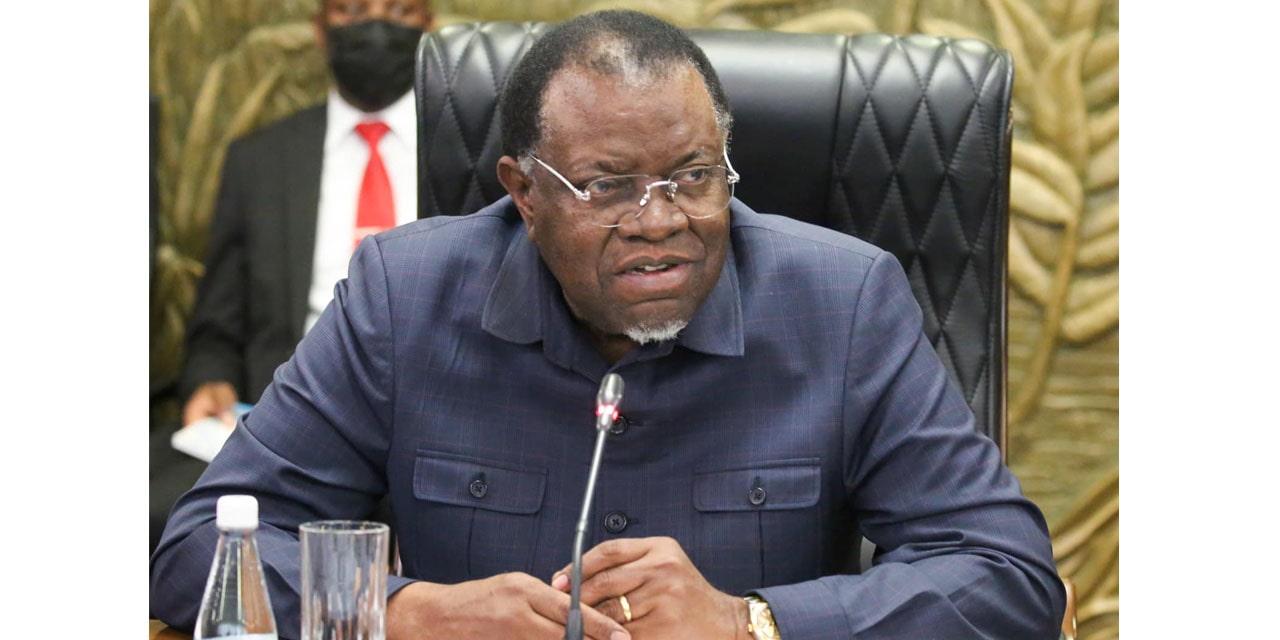Tujoromajo Kasuto
Political Analysts have welcomed the fact that President Hage Geingob has so for not endorsed anyone for top positions in the Swapo Party at the upcoming elective congress, stating that it will enhance democracy, competency and candidates who meet the necessary requirements may compete, including for the position of party President.
Nomination for the positions is next month in September, it was announced at the weekend’s Central Committee meeting.
Political analyst Rui Tyitende notes that the tradition of the sitting President endorsing a candidate of his choice has been the norm since President Nujoma and this practice does not bode well for a ‘’political party that claims to embrace values of democracy’’.
President Pohamba did the same when he chose President Geingob as his preferred candidate.
Tyitende states that, ‘’The current level of uncertainty is good as the nomination and election of candidates should be open for all those that qualify.’’
But, it is still early days, as President Hage Geingob announced his Harambee slate for the 2017 congress to a Politburo meeting on 6 October 2017.
Geingob justified this saying ‘’with regard to the announcement of endorsement, which some people feel should not have happened, let us take note that in all democratic systems around the world people have a right to endorse their preferred candidate’’.
He added that those wishing to contest can do so without his endorsement, as Swapo allows for democratic participation.
Some of the candidates wishing to run for the three top positions at the year-end Swapo congress have already started campaigning without any endorsement. Current Swapo Vice President Netumbo Nandi-Ndaitwah and Secretary General, Sophia Shaningwa, have left the Harambee house of 2017 and are going it on their own, both seeking for re-election in their positions.
Henning Melber, historian and a political analyst, said the fact that President Geingob has so far not anointed someone should be seen as an opportunity, adding that ‘’filling of the posts in the party should be based on open and transparent campaigning among individual candidates’’.
But, according to him, the party’s ‘’internal political culture has not reached the stage where such transparency would work’’.
Tyitende opined that it’s good if the Geingob does not endorse a particular candidate, as the party will become more democratic and those that are competent and meet the necessary requirements may compete.
Melber echoed the same sentiments, saying the party should embrace discussions that focuses on political ideas among its leaders to secure support to be elected into leadership positions.
‘’Candidates are still operating on the basis of affiliations (often with ethnic particularism as a
factor) and not on the basis of the political vision and programme they offer. Decisions are
not based on content but more on affiliation to a certain camp. This is not supporting subject
related debates and continues to cultivate suspicion, animosities and clandestine recruitment
of support by promising favours,’’ he opined.
Thus, he asserted, that Swapo needs to reach a stage where decisions should be taken by
party members on the basis of qualifications beyond ethnicity or other affinities.
He believes appointments to the positions should become a competition between political
thoughts and preferences for policy and not a leader of a party or head of state calling the
shots and deciding on what goes or not.
‘’This is absent in the party-internal factional fights in Swapo, which also happen mainly behind closed doors and offer no transparency. It means energy is absorbed by internal rivalries without any benefit for policy,’’ Melber said.
Meanwhile, Tyitende touched on the Helmut Amendments that limits the field of potential
candidates, who are capable, but have not served the required years in the political organs of Swapo to qualify for the top four positions in the party.
He said democratic institutions do not necessarily reflect democratic politics or policies and
those amendments serve as a stumbling block for members of the party that aspire to ascend to upper echelons of the party’s structures.
‘’They are undemocratic, favour old people, and intentionally exclude the youth.’’
Political analysts Ndumba Kamwanyah emphasised that it is good that Geingob has so far not endorsed anyone ‘’as it will allow democracy and people make their own decisions on who they want to endorse. I think that the culture of endorsements is to some extent not democratic’’.




